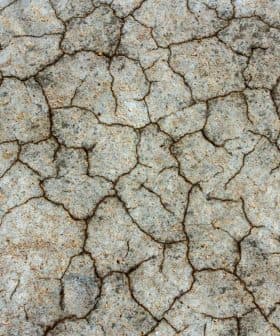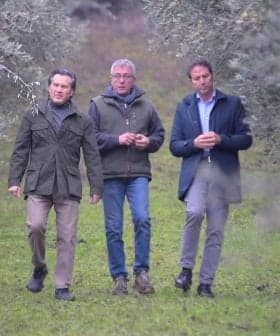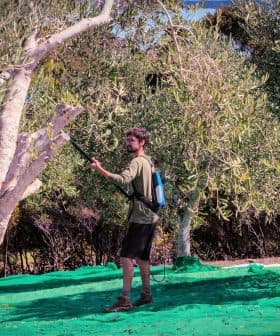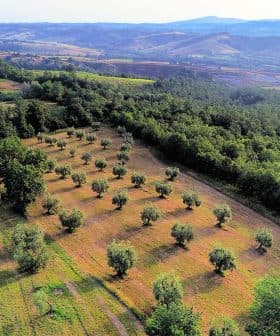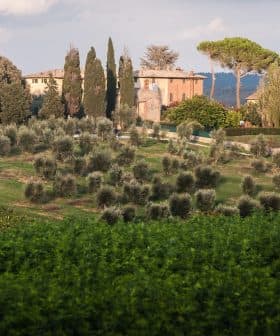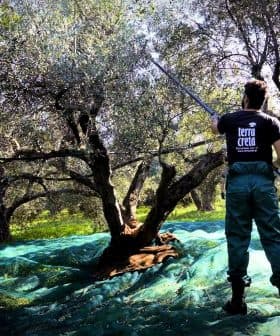Puglia Warns Farmers of Ineffective Xylella Fastidiosa Cures
Members of the regional balance commission said no product on the market can cure the Xylella fastidiosa bacteria, which continues to hurt producers across the region.
Officials in the Apulian region have stated that there are no current products available to eliminate Xylella fastidiosa from infected trees, with the only current methods being monitoring and destruction of infected trees. Despite ongoing research, challenges in public financing and developing a comprehensive strategy to combat the bacteria and restore affected agricultural areas remain, with farmers in regions like Salento facing severe impacts from the disease.
There are no products on the market that may be used to eliminate Xylella fastidiosa from infected trees, according to officials from the Apulian regional balance commission.
“The two products that have been marketed in the past few weeks as remedies against the desiccation of the trees, and useful for bringing the plants back to their original glory, are a mix of natural soaps or adjuvants,” Salvatore Infantino, director of the phytosanitary observatory of Puglia, told a public hearing.
Public entities should not repeat the errors of the past by giving credit to non-scientific theories that already have done so much damage and to which much time has been lost.
The officials admitted that after eight years, there is still no easy solution for stopping the most active pathogen affecting olive trees in Italy’s largest olive oil-producing region.
See Also:Production in Italy Bolstered by Strong Recovery in SouthCurrently, stemming the disease’s spread requires trees to be monitored and eventually destroyed within infected areas, known as red zones, and continually observed in the surrounding buffer and containment zones.
Infantino said that developing a product capable of combating Xylella fastidiosa remains an important goal for many of those working to curtail the devastation caused by the bacteria.
“At the moment, good farming practices and eradication are the only weapons we have against Xylella to buy time while waiting for a truly effective treatment,” he said.
After the hearing, the president of the Apulian regional budget commission, Fabiano Amati, told the local Brindisi Report newspaper that “public entities should not repeat the errors of the past by giving credit to non-scientific theories that already have done so much damage and to which much time has been lost in the fight against Xylella.”
However, he added that studies conducted in the United States and Spain about stemming the spread of the disease were showing some promise.
“A few pieces of research hint at a possible role of a few viruses, which find nutriment in those bacteria,” Amati said. “But we still have to wait and see what happens in the translation from an experimental lab environment to an open grove.”
Hurdles in public financing and in developing a strategy to both contain the bacteria and to restore Xylella-stricken agricultural areas remain among the challenges local government and growers face, the local branch of the national farmers’ association, Coldiretti, said.
Savino Muraglia, president of Coldiretti Puglia, said that only six percent of all funding requests had been approved up to now, with no actual fund transfer having yet occurred.
“Nineteen months after the launch of the Apulian olive regeneration plan worth €300 million, €134 million are still to be allocated,” Muraglia said. “The interventions which would have allowed farmers to return to production after the Xylella crisis are yet to be activated.”
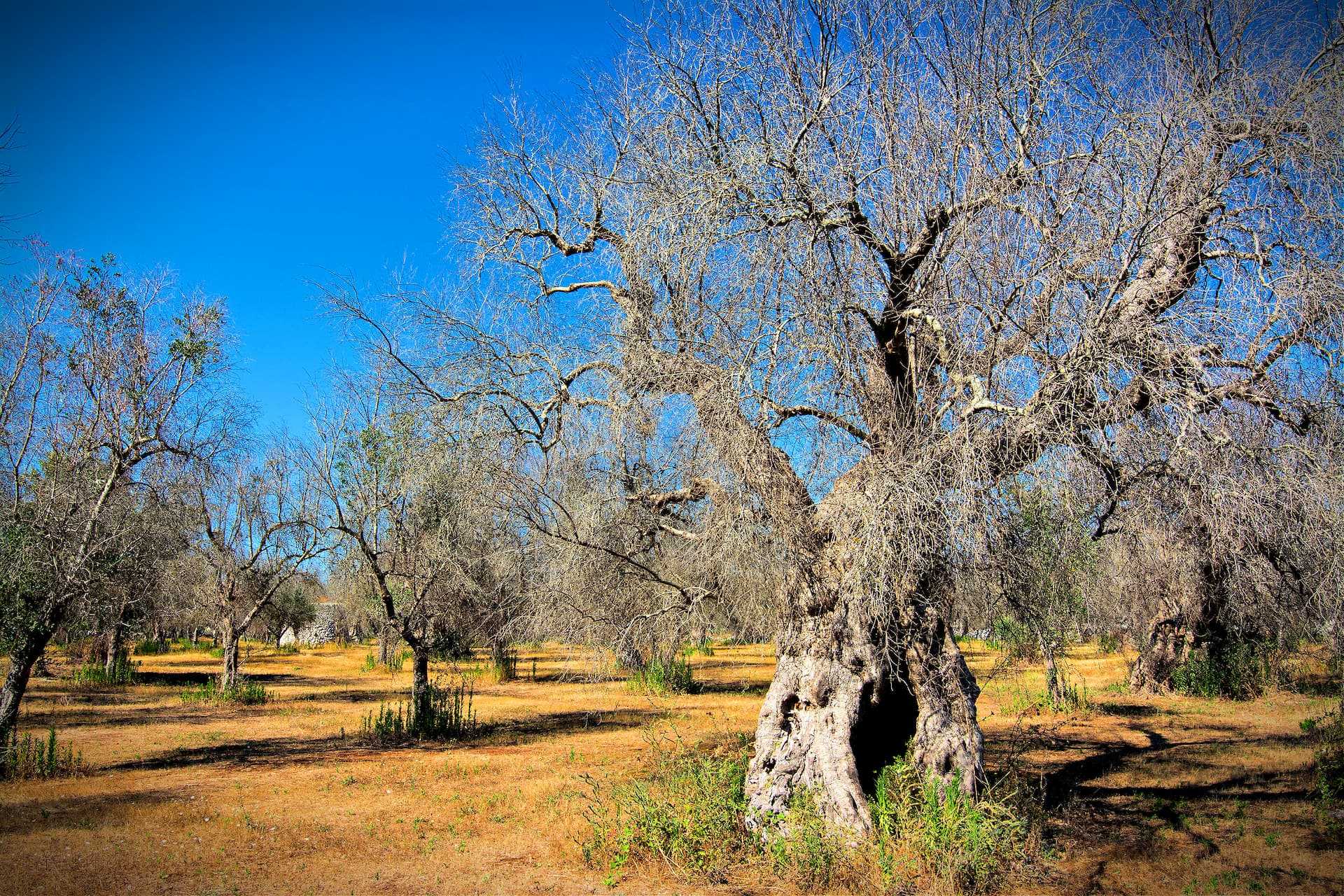
Infected trees in Salento, Puglia
“So, too, have the funds needed to remove the withered trees, foster research and production diversity,” he added. “There is also the failure of the project to graft the monumental olive trees, which had only 91 farming companies adhering due to the bureaucratic hurdles.”
Muraglia, who is also an award-winning producer in Puglia, said that diversification was vital for farmers in the Salento region seeking to recuperate the land. He contended that the olive monoculture that had traditionally prevailed was one of the reasons why the bacteria so heavily impacted the region.
Salento is a west-central area in Puglia and has been impacted severely by Xylella fastidiosa. Coldiretti said that in the last seven years, many olive groves had become graveyards. As a result, farmers did not earn any income, and more than 5,000 jobs were lost.
Farmers in Bari, which is located north of Salento, are also worried about Xyella fastidiosa spreading from the containment and buffer zones in Alberobello, Fasano and Locorotondo to their own trees.
On the other side of the Salento, in Lecce, farmers also reported olive tree productivity falling by half. Significant production drops also have been reported in the Brindisi province, just east of Salento.
According to the regional phytosanitary observatory, more than 108,000 plants have been monitored in 2021. Of these, 56 tested positive for Xylella fastidiosa, with 26 in the containment area and 30 in the buffer zone.
Share this article


